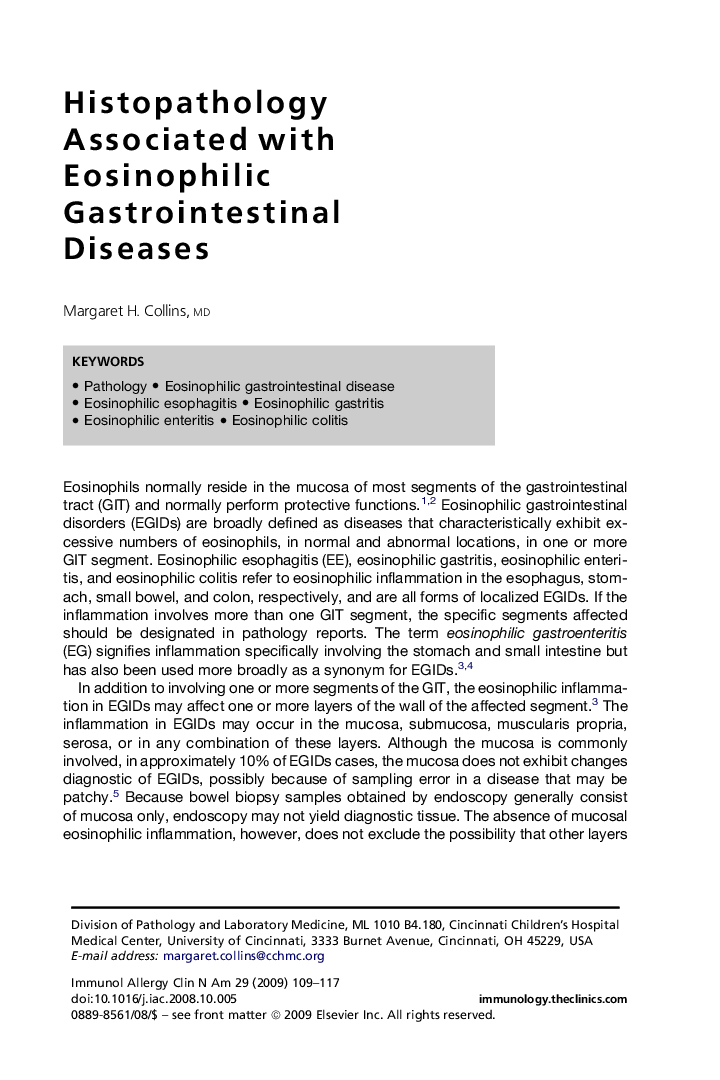| Article ID | Journal | Published Year | Pages | File Type |
|---|---|---|---|---|
| 3355053 | Immunology and Allergy Clinics of North America | 2009 | 9 Pages |
Abstract
Eosinophilic gastrointestinal diseases (EGIDs) are broadly defined as diseases that characteristically exhibit excessive numbers of eosinophils, in normal and abnormal locations, in one or more gastrointestinal tract segments. EGIDs have multiple possible etiologies. Pathologists must avoid overdiagnosis of EGIDs by applying site-specific criteria for eosinophil density to mucosal biopsy specimens. Gastroenterologists must avoid contributing to overdiagnosis by submitting biopsy samples from each segment of the gastrointestinal tract separately, especially from the colon where the maximum mucosal eosinophil density in the right side normally exceeds that of the more distal colon. More studies of normal tissue and tissue from patients who are known or suspected to have EGIDs, with clinicopathologic correlations, are required to more fully define the spectrum of histopathology in EGIDs.
Keywords
Related Topics
Health Sciences
Medicine and Dentistry
Immunology, Allergology and Rheumatology
Authors
Margaret H. MD,
